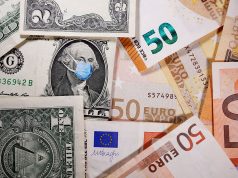Philippine mayors start anti-corruption campaign

By Kyle Aristophere T. Atienza, Reporter
MORE than 100 Philippine mayors gathered on Thursday to push their good governance drive, vowing to uphold the rule of law and human rights.
In a joint manifesto, the mayors vowed to maintain the “highest standards” of integrity and transparency in government. They also called for citizen participation, youth engagement, respect for human rights and equitable development.
The mayors also pushed responsible use of public funds, streamlining state services, the use of more advanced technologies and strengthening public-private partnerships.
The campaign was started more than a month after Baguio City Mayor Benjamin B. Magalong, the campaign’s main voice, decried rampant corruption.
“We stand with Mayor Magalong and others in declaring that we want a Philippines where public officials focus on public service rather than private enrichment, and where citizens and businesses compete on a level playing field rather than bribe to get ahead or even just get along,” the mayors said.
The manifesto also called on other mayors to commit to continuous learning and development to enhance leadership skills and best practices.
In July, Mr. Magalong expressed concern about the country’s P14.1-trillion debt, asking whether Filipinos have really benefited from it.
He also decried the continuation of the pork barrel system in different forms, citing its prevalence in infrastructure projects. Unscrupulous officials get as much as 25% in kickbacks from these projects, he said, citing unnamed contractors.
Quezon City Mayor Maria Josefina “Joy” Belmonte-Alimurung, Pasig City Mayor Victor “Vico” N. Sotto, Marikina City Mayor Marcelino “Marcy” R. Teodoro and Muntinlupa City Mayor Rozzano Rufino “Ruffy” Biazon, who are all from Metro Manila, signed the manifesto.
Business groups have expressed support for the campaign including the Makati Business Club, which said corruption is the “main culprit in the stunting of our youth, the decline in our learning achievements and the challenges many Filipinos face as they make their way in life and society.”
Corruption is also the main reason why the Philippines struggles to expand businesses, attract investment and be globally competitive, the business group said in a statement.
The Philippines ranked 166th out of 180 countries in the 2022 Corruption Perceptions Index by Transparency International.
But it’s very difficult now “to be very vocal on good governance and denouncing corruption,” Gary Ador Dionisio, dean of De La Salle University – College of Saint Benilde School of Diplomacy and Governance said in a Facebook Messenger chat.
“I consider this move of Mayor Magalong and other mayors as patches of green on a bleak island,” he said in a Facebook Messenger chat.
Mr. Dionisio said Mr. Magalong’s audacity in launching the campaign should “infect” other mayors and officials to join the cause.
He said the drive is similar to the 2001 anti-corruption campaign of then national police chief Panfilo M. Lacson, who received high approval ratings and got a Senate seat that year.
“It helped Mr. Lacson win the senatorial elections then,” he said. “He even used the campaign to launch his presidential bid in 2004. To learn from the lessons of Senator Lacson’s experience, Mayor Magalong should ensure to walk the talk by setting an example in Baguio City — we need evidence-based results to prove its worth.”
He said citizens’ participation would be crucial in making the advocacy work. “Governance is not exclusive to government leaders but also to other stakeholders of our society, including civil society, the private sector and other interest groups.”
A June 29-23 Pulse Asia Research, Inc. poll commissioned by Stratbase ADR showed that 84% of Filipinos wanted the government to boost its anti-corruption drive.
Forty percent of the 1,200 respondents said controlling corruption would lead to economic recovery and development, while 23% said it would improve the plight of ordinary citizens.
In the same poll, 25% of respondents said corruption was among their top concerns, after inflation (63%), wage hike (44%), joblessness (31%) and poverty (30%).
“If the results persist, people must be made more aware about how inflation and the rising cost of living may partly be a result of corruption,” Jean Encinas-Franco, who teaches political science at the University of the Philippines, said in a Facebook Messenger chat before Thursday’s event.
She said civic groups should inform the public that government officials, including the President, could be held accountable for “not acting right away” amid spiraling prices.
Filomeno S. Sta. Ana, coordinator of Action for Economic Reforms, said rampant corruption adds to inflationary pressures.
“If only our scarce resources were used properly and efficiently, our deficit spending could be reduced significantly,” he said earlier. “Said differently, the fiscal deficit we have also funds corruption.”
Arjan P. Aguirre, who teaches political science at the Ateneo de Manila University, said Filipinos have been desensitized by “decades of widespread frustration about the quality of government services and response in times of need.”
“What many people care about especially these days is merely to get access to those public goods, favors and benefits regardless of whether they come from actions tainted with corruption,” he said before Thursday’s event.



